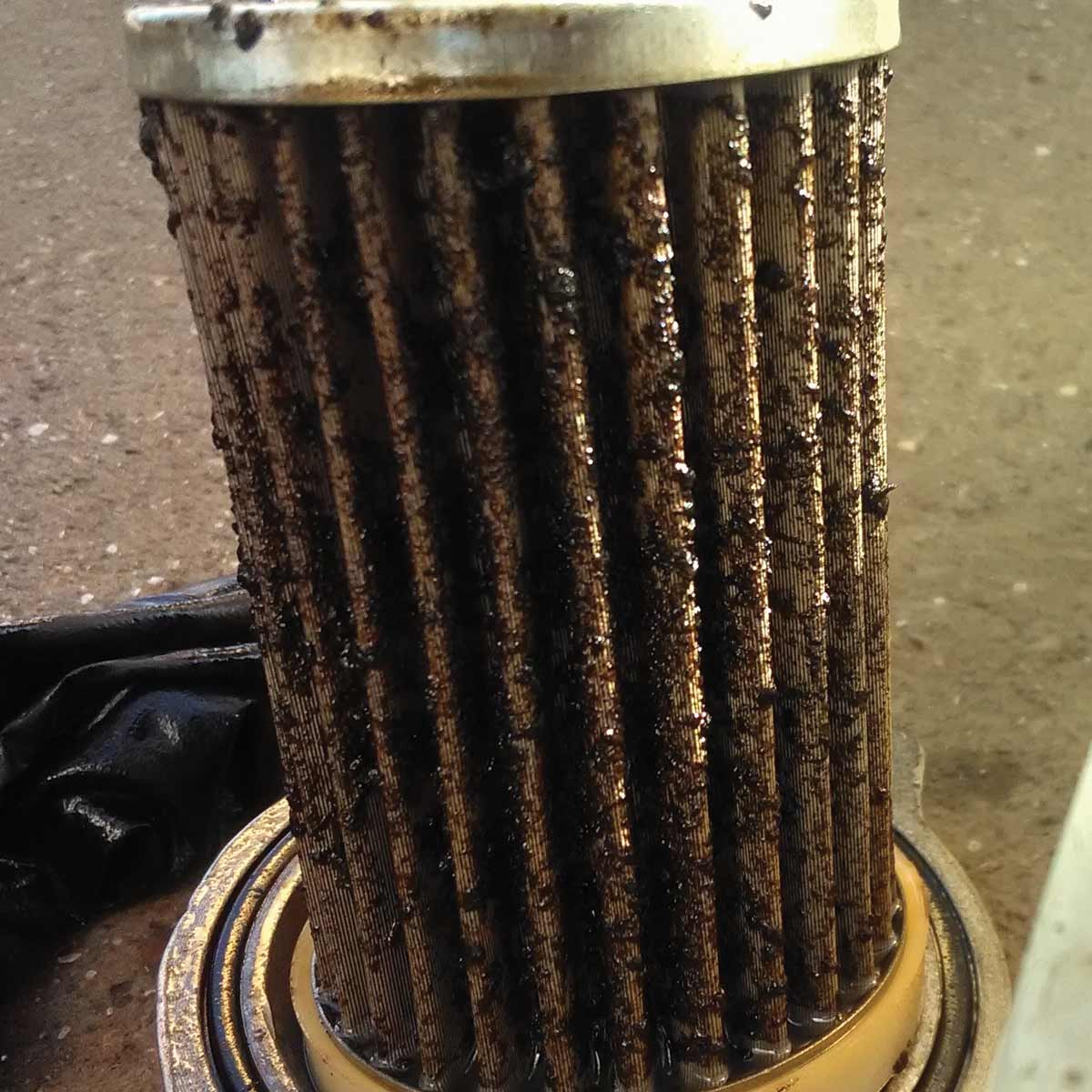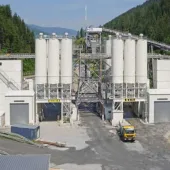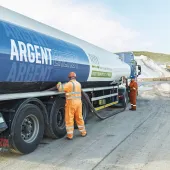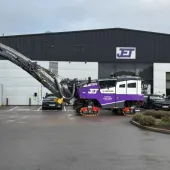Fuel for Thought

First published in the November 2019 issue of Quarry Management
Liquid Management Solutions highlight the importance of fuel hygiene
Fuel-management specialists Liquid Management Solutions Ltd (LMS), now part of the Triscan Group, have been urging clients, both existing and new, to talk about their on-site fuel hygiene regimen for many years. Cases of equipment being damaged by fuel suffering from ‘Diesel Bug’ have been increasing dramatically year on year as transport operators fail to monitor their stocks for microbial growth.
‘I recall our first private discussions on fuel quality taking place at Hillhead 2014, where we were exhibiting,’ said LMS’s managing director Kevin Taylor. ‘It perturbed me somewhat to hear the prohibitive costs being applied to operators for non-warrantied claims from the manufacturers for injector failings and the like, purely down to poor fuel quality.’
Stored diesel and gasoil can become contaminated in a variety of ways depending on the conditions and their frequency of use. In older tanks it is not unusual to see particles collecting in the lower third of the tank, either from degraded tank walls or from debris being introduced when refuelling or emptying.
When fuel is left to stand for longer periods, for example in back-up tanks or bulk storage tanks, microbial growth presents the greatest danger. LMS have been proactive within the UK quarrying industry providing impartial help and guidance on the ways to keep fuel in good condition. Some astute commercial operators have invested in the use of fuel-recirculation systems and high-micron particle and water filtration for larger operations, but there is still a long way to go.
When fuels are required to stand still by circumstance, they can be effectively cared for simply by frequent recirculation of the tank contents. This frequent ‘churn’ prevents the colonies of bacteria from gaining a foothold, thus preventing their growth. LMS recommend the installation of recirculation systems that include water particle filters and pre-filter conditioners that will prevent microbial growth.
For smaller, day tanks, a basic recirculation system will suffice, installing a 100-micron particle filter that will capture debris and a pre-filter fuel conditioner which will prevent microbial growth. Operators using generator day tanks of up to 1,000 litres should also look to adopt this equipment, which should be enough to dramatically extend the life of stored fuels.
In larger fuel storage tanks, more robust solutions are required. LMS would recommend recirculating the entire contents of a tank at least one-and-a-half times in 28 days to maintain fuel hygiene. These types of solutions are typically fitted with finer 2-micron filters, ensuring the maximum purity of the fuel being delivered to end-users’ equipment, whether that be a 100-tonne dumptruck, a 44-tonne HGV or a large generator.
Over the last four years, LMS’s fuel-testing service has seen some of the best and worst cases of fuel contamination – with some samples appearing more like sludge. The service is very quick and effective, with LMS engineers using specialist equipment to take samples from the bottom and middle of the storage facilities. These are brought back to the laboratory for prompt, accurate testing with the results available within 48h of extraction.
Silverstone transport operator suffers poor fuel quality
One long-standing LMS customer, Silverstone-based tipper operator Graham Churchill Haulage Ltd, was thankful of the prompt expertise on the end of the telephone when the firm encountered major running issues with several of its HGV fleet, which was directly related to poor fuel quality.
Graham Churchill Haulage experienced first-hand what can happen from start to finish when fuel deterioration reared its head in 2018. ‘We’ve been in business for 50 years and, to be honest, modern-day tipper truck engines are nothing like what they were back then. Maybe, like most operators, we thought having a relatively new fuel storage tank and operating a modern HGV fleet wouldn’t give us any problems,’ said Graham Churchill’s managing director, Karen Henson.
The company was first made aware of serious fuel problems when its favoured vehicle manufacturer intervened on a new eight-wheel tipper and took various fuel samples for analysis, cutting open the vehicle fuel filter and even the fuel tank. Unfortunately, due to the poor fuel quality, Graham Churchill Haulage were unable to implement any warranty claim, so they turned to LMS to see what could be done for the future.
The company’s fuel storage capacity and fleet usage patterns determined a ‘best practice’ route for LMS, who undertook independent fuel sample analysis to reconfirm the state of the fuel. They then provided a turnkey solution, including a thorough tank clean, to get rid of any debris, aggressors and bugs, as well as the supply and installation of a new 4-micron filtration system in the tank facility.
Graham Churchill have now adopted ongoing best practice using LMS’s fuel-cleanliness programme, which ensures fuel is continually fit for purpose for the company’s 25-strong tipper fleet. For further information visit: www.liquidms.co.uk
- Subscribe to Quarry Management, the monthly journal for the mineral products industry, to read articles before they appear on Agg-Net.com








